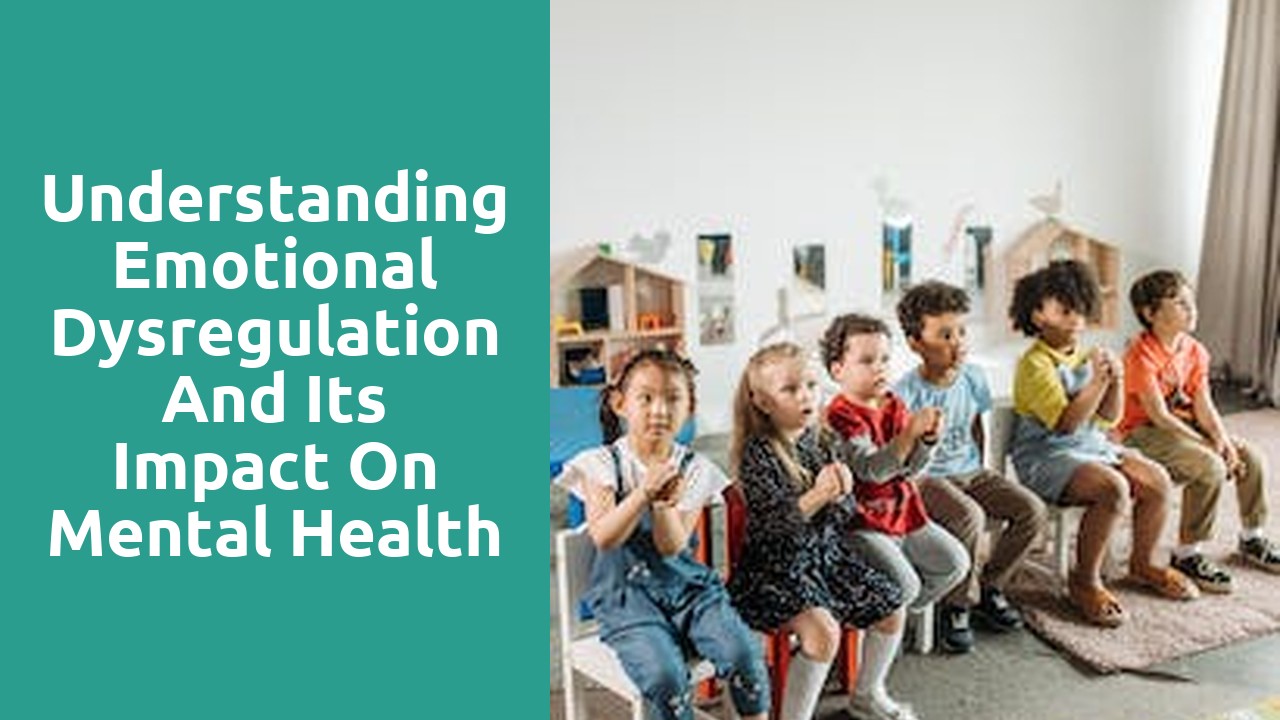

Emotions have long been recognized as a powerful force in our lives, shaping our thoughts, behaviors, and overall well-being. But the depth of their influence on our mental health is only beginning to be truly understood. Recent scientific research has shed light on the intricate connection between emotions and mental health, revealing a complex interplay that goes far beyond surface-level understanding.
Studies have shown that emotional experiences, both positive and negative, can significantly impact our mental health outcomes. For instance, chronic feelings of sadness or anxiety have been linked to a higher risk of developing mental health disorders such as depression or anxiety disorders. Conversely, experiences of joy, contentment, and love can contribute to improved mental well-being and resilience. These findings emphasize the importance of emotional awareness and management in promoting mental health and lead us to ask deeper questions about the hidden influences of our emotions on our overall mental well-being.
Emotional turmoil is an inevitable part of the human experience, and the rollercoaster of feelings that accompanies it can be both exhilarating and exhausting. Whether it is the exhilaration of joy or the heaviness of sadness, our emotions have a profound impact on our mental wellbeing. Navigating the ups and downs of these emotions is crucial for cultivating better mental health, as it allows us to develop resilience and find balance in the face of adversity.
One of the key aspects of navigating emotional turmoil is developing emotional intelligence. This means gaining a deeper understanding of our emotions, learning to recognize and label them, and being able to effectively regulate them. By enhancing our emotional intelligence, we are better equipped to navigate the rollercoaster of feelings with grace and self-awareness, rather than being swept away in their intensity. This self-awareness allows us to respond to emotions in a more mindful and intentional manner, leading to a greater sense of control over our mental state and overall wellbeing.
Cracking the code of emotional dysregulation is a crucial step in understanding its effects on mental health. Emotional dysregulation refers to the difficulty individuals face in regulating and expressing their emotions appropriately. This can manifest as intense mood swings, impulsivity, and difficulty in managing stress. While it is a common occurrence in many mental health conditions, such as bipolar disorder and borderline personality disorder, emotional dysregulation can also affect those without a specific diagnosis. Therefore, it is essential to delve deeper into the intricacies of this phenomenon to comprehend its impact on mental well-being.
One of the key effects of emotional dysregulation on mental health is the potential disruption of relationships. When individuals struggle to regulate their emotions, it can lead to conflicts and misunderstandings with loved ones. The unpredictability of emotional outbursts or withdrawal can strain relationships, causing distress and isolation for both parties involved. Moreover, the individual experiencing emotional dysregulation may feel a sense of guilt or shame, further exacerbating their mental health challenges. Therefore, deciphering the connection between emotional dysregulation and relationship dynamics can provide valuable insight into improving mental well-being.
Emotional dysregulation can be an overwhelming experience, but there are effective strategies to help manage the storm within and enhance mental health. First and foremost, self-awareness is key. Taking the time to identify and acknowledge our emotions can provide valuable insights into our inner world. This self-reflection allows us to better understand the triggers and patterns that contribute to emotional dysregulation, empowering us to respond in healthier ways.
Once we have a clear understanding of our emotions, practicing self-care becomes imperative. Engaging in activities that bring us joy and relaxation can help to regulate our emotions and promote mental well-being. This could include hobbies, exercise, spending time in nature, or any other activities that resonate with us personally. Additionally, cultivating a support network is crucial. Surrounding ourselves with understanding and empathetic individuals who can provide a safe space for emotional expression can make a significant difference in our journey towards emotional regulation and improved mental health.
Emotional dysregulation has long been recognized as a significant factor in the development and exacerbation of mental health challenges. However, understanding its complexities and its impact on mental wellbeing requires a more nuanced exploration. Often overshadowed by other symptoms or conditions, emotional dysregulation refers to the difficulty individuals experience in managing and expressing their emotions in a healthy and balanced manner. This can manifest as intense and unpredictable emotional responses, impulsivity, heightened sensitivity, and difficulty in effectively navigating and regulating emotions.
The impact of emotional dysregulation on mental wellbeing is profound, as it can disrupt daily functioning, strain relationships, and contribute to the development of mental health disorders. Individuals who struggle with emotional dysregulation may find it difficult to maintain stable relationships or engage in effective communication, leading to feelings of isolation and loneliness. Additionally, the inability to regulate emotions can lead to maladaptive coping mechanisms such as self-harm, substance abuse, or disordered eating, further compromising mental wellbeing. The frequent and intense fluctuations in emotions associated with emotional dysregulation can also contribute to chronic stress, anxiety, and depression, making it essential to address and manage this aspect of mental health.
Emotional dysregulation can play a significant role in mental health challenges, often leading to a state of chaos within an individual's internal landscape. The inability to effectively manage and regulate emotions can result in heightened levels of anxiety, depression, and overall distress. This tumultuous emotional state can further exacerbate existing mental health conditions or even contribute to the development of new ones.
Understanding the role of emotional dysregulation in mental health challenges is crucial for both individuals experiencing these difficulties and mental health professionals. By recognizing the impact that emotions have on mental well-being, interventions and strategies can be developed to help individuals regain a sense of calm and stability. By addressing the root causes of emotional dysregulation and providing the necessary tools for self-regulation, individuals can navigate the challenges of their mental health with greater resilience and find a path towards emotional harmony.